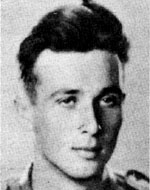Son of Yehoshua and Hannah. He was born on May 3, 1931 in Jerusalem. The Elimelech family lost two sons in the War of Independence, Avner and Yaakov. When Elimelech arrived at school, he studied at the Geula elementary school in the city and after completing his elementary school he studied at the Amal vocational school there. He then studied at the Hebrew Technion in Haifa and continued with the Indiana Technological Institute in the United States – and became a mechanical engineer. He belonged to the Gordonia youth movement and to the United Movement. In the last action of his brother Jacob (see above), Elimelech, who was younger than him, was to participate in the battle, but Yaakov the eldest insisted that he be a member of the Palmach, Who was murdered in Hebron in the 1929 riots and was buried there in the mass grave – and it seems that Elimelech was an operations officer in a battalion that was one of the first to enter Hebron to liberate. Hate to Hebron, but when the time came, in the Six-Day War, young Elimelekh stood up to the supreme moral test when he was in the grip of the fate of their lives Of the inhabitants of the city during the occupation, the love and respect of man, even if it was an enemy, were precious to him and everyone who knew Elimelech the young man would testify to his many virtues as a man of vision and talent, but above all there was a soul that loved man, He was the first Jew to enter the Cave of the Patriarchs in Hebron, and even after the Six-Day War there was a sincere and loyal friendship between Elimelech and the city’s leaders, including Mayor Ali Ja’abari, and also mutual respect. And this was a good service not only for his people and for himself but also for all his followers during his studies, in his work with the superiors About him and those he was in charge of, and also within the framework of his service in the IDF. It was not only natural that he was given this blessing, but rather, as a result of his Jewish national education, his father’s house gave him this trait and especially his service in the ranks of the Palmach. And after the Six-Day War, he would go to reserve duty from time to time until on the 28th of Tammuz 5728 (June 28, 1967) he died in the line of duty when he returned From the training of a group of officers. He left a wife and two little girls. Was laid to rest in the military cemetery on Mount Herzl in Jerusalem. His commanding officer, Zvi Ofer, sent a letter of condolence to Eli’s father at the “Thirty” for his death: “I was able to meet Eli for a short time that began on the eve of the Six-Day War. Eli was the operations officer of the battalion, and as such he was my right hand in the tasks assigned to our battalion, and he was an inexhaustible entrepreneur and visionary who had no patience to wait for the details of orders. We had some advice for solving problems, and Eli had already had the idea for a solution His daughter was wide enough to love them all, but above all he loved his homeland, for which he was prepared to sacrifice all of himself, and that was his great love for the IDF, the regiment, and the role it played. Eli was aware of every problem that arose in the battalion and was jealous of the Battalion’s good reputation in everything related to carrying out the military tasks – integrity and cleanliness. If it happened that someone had hurt our good name, it was Eli who would have cried out for him. I remember how Simcha he was when we stood at the gates of the city of Hebron, the city of his forefathers: the time has come to avenge the blood of our forefathers. . . And when it fell into our hands, his great love grew to be created in the image of God and warned his fellow soldiers not to touch a defenseless man. Moreover, when Eli learned that her Arab girl had been hit by a stray bullet, she took her to the hospital, brought her sweets and said goodbye with a kiss. That was me! Dear father, the third son of Israel’s systems was lost. We lost an admired and evil commander. We, his comrades in arms, will continue our path and preserve Eli’s legacy. We adhere to the same principles in which he championed our country, which he so loved. “And his wife wrote on the same day among other things:” I know, Tamar, that there are no words of consolation for the loss of a husband and good evil, a devoted and talented father. But we as soldiers have no consolation either. In his defeat one of the fighters and commanders was lost to the battalion. We will miss him for his infinite love and concern, his passionate devotion to his role and tasks, his exemplary loyalty and his supreme energy, in which he strengthened weak hands and gathered courage and courage in the difficult days. We, his comrades in arms, create his heartfelt memory in our own way, on the day that Eli’s wishes are fulfilled, in the way of preserving the country’s borders in the life of the people. . . “In the book” Nizkor “, published by the Hebrew University of Jerusalem and its student union, edited by Yehuda the Civil, were brought history and shortened description of his last battle.
